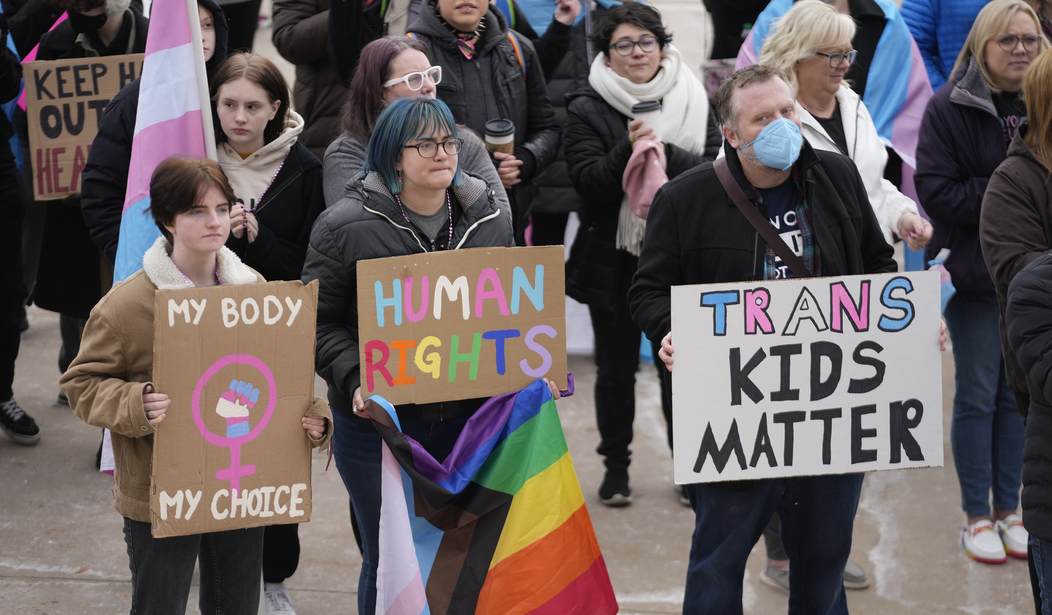This is extremely suspicious, not to mention unprofessional. And given that most of money involved in this study was taxpayer funding, I'm not even sure how you get away with this.
The doctor, Johanna Olson-Kennedy, began the study in 2015 as part of a broader, multimillion-dollar federal project on transgender youth. She and colleagues recruited 95 children from across the country and gave them puberty blockers, which stave off the permanent physical changes — like breasts or a deepening voice — that could exacerbate their gender distress, known as dysphoria.
The researchers followed the children for two years to see if the treatments improved their mental health. An older Dutch study had found that puberty blockers improved well-being, results that inspired clinics around the world to regularly prescribe the medications as part of what is now called gender-affirming care.
This study was an attempt to replicate that Dutch study. Dr. Olson-Kennedy was very clear about the benefits she expected to see from giving puberty blockers to 11-year-olds.
In a progress report submitted to the N.I.H. at that time, Dr. Olson-Kennedy outlined her hypothesis of how the children would fare after two years on puberty blockers: that they would show “decreased symptoms of depression, anxiety, trauma symptoms, self-injury, and suicidality, and increased body esteem and quality of life over time.”
That hypothesis does not seem to have borne out.
The data appears to show no real change or improvement at all. What Dr. Olson-Kennedy claims now is that everyone was doing so well when they came into the study that they were still in roughly the same place two years later: "They’re in really good shape when they come in, and they’re in really good shape after two years." Except her previous description of the kids coming in said about a quarter were depressed and/or suicidal when the study began (again, we're talking about 11-year-olds).
So if 25% were depressed or suicidal pre-treatment and the study results showed no improvement, that would suggest that 25% were still depressed or suicidal after getting puberty blockers. Clearly there was some room for improvement and puberty blockers didn't deliver on the "decreased symptoms" Dr. Olson-Kennedy predicted. Which is apparently why she has been sitting on these results. She admits she's afraid the data could be used to undermine her own position.
“I do not want our work to be weaponized,” she said. “It has to be exactly on point, clear and concise. And that takes time.”
Dr. Olson-Kennedy isn't a disinterested scholar she's a vocal proponent of gender affirming care who is involved in fighting state bans in courts across the country. It looks to me like she went into this study in hopes of creating her own private silver bullet which she could use to fight for the efficacy of gender affirming care. But the results didn't work out as she'd hoped so now she's just sitting on the data, nine years and counting.
The actual findings in this case appear to match with a similar UK gender clinic attempt to replicate the Dutch results. That one was launched in 2011 and also found no improvement in outcomes as a result of puberty blockers, but the results of that study were not made public until 2020. Nine years, during which time puberty blockers became standard treatment in the UK despite a lack of research supporting their use.
Both studies, the UK and the still unpublished US version, seem to jibe with the findings of the Cass Review which concluded there was little to no evidence supporting the use of puberty blockers.
Jesse Singal credits the Times for the "massive" scoop and also notes that if researchers can just sit on results they don't like, we're not really doing research.
2/ A situation in which a researcher can ask for money from the federal government to run a study, run the study, and then not release the results because they weren't what she wanted is a situation in which federal funding for science is fundamentally broken.
— Jesse Singal (@jessesingal) October 23, 2024








Join the conversation as a VIP Member